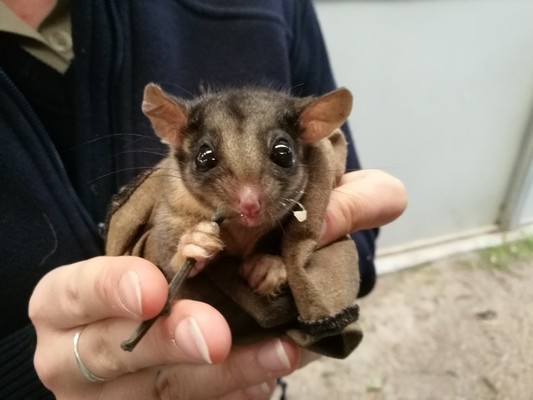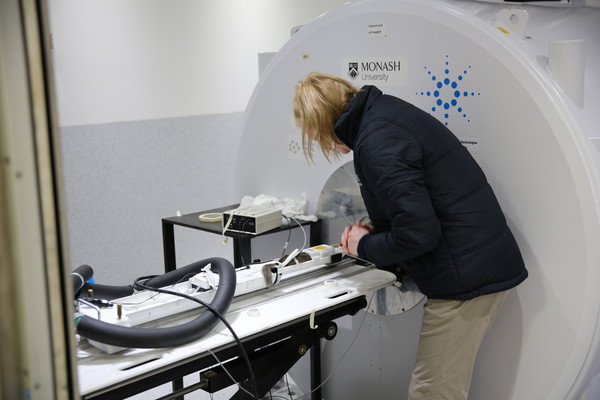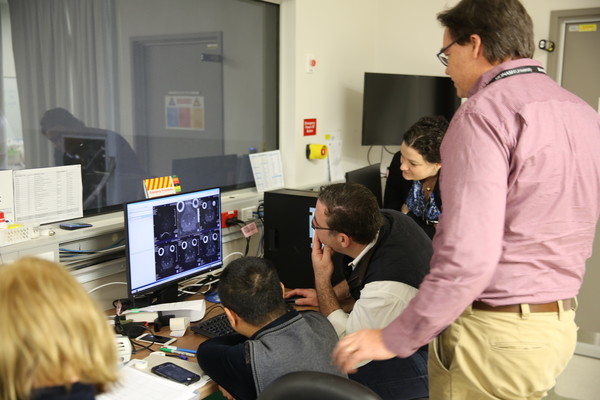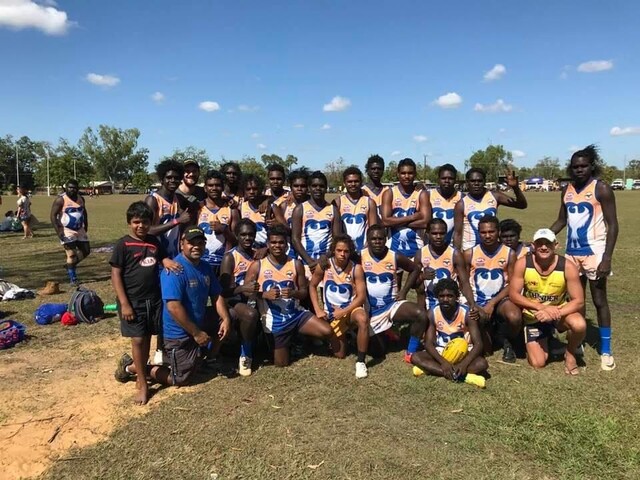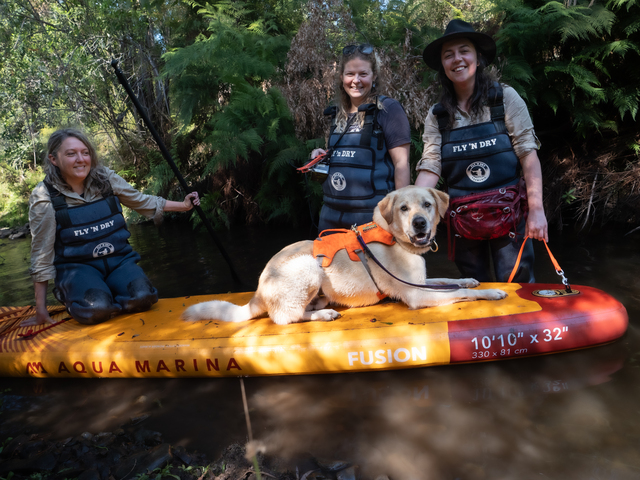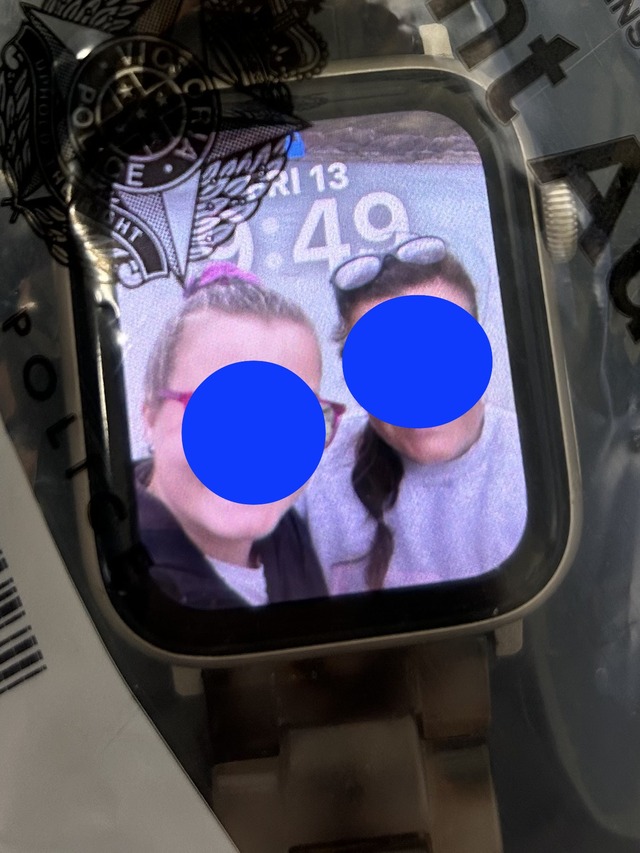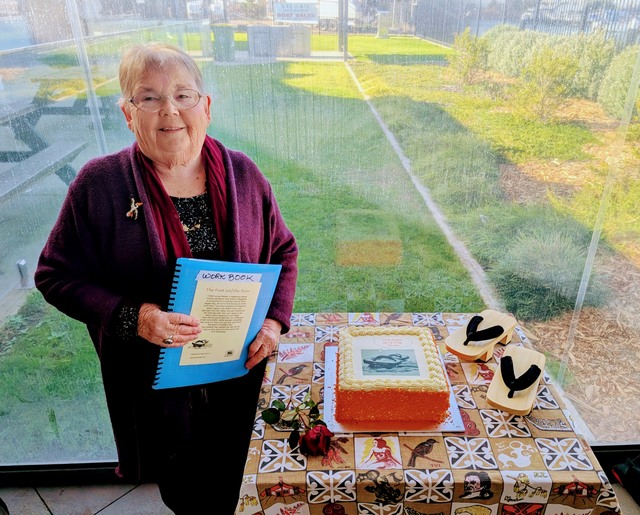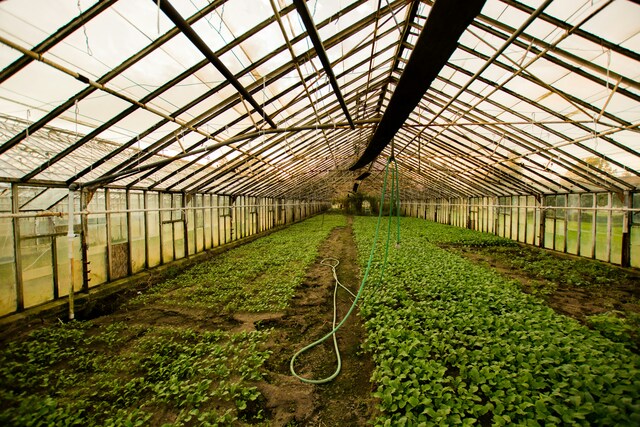Healesville Sanctuary performed a world-first treatment in a bid to save a Leadbeater’s possum.
Phoenix underwent an MRI scan at Monash Biomedical Imaging earlier this year, the sanctuary revealed on 28 November.
He’s among only 11 critically-endangered Leadbeater’s possums in captivity across the globe.
Keepers monitoring Phoenix through video footage noticed some subtle but odd changes in his behaviour.
Senior vet Leanne Wicker said treatment helped, “but there were still some residual things”.
“When a person has a problem where they have severe neurological signs, sometimes they’re left with a residual tick,” she said.
“We didn’t know how he would react socially with other possums if he had a residual brain legion.”
So the sanctuary enlisted help from a team of specialists and took Phoenix to Monash Biomedical Imaging.
“They have MRIs that are specifically used for small animals,” Dr Wicker said.
“So it wasn’t a little tiny dude in a big human MRI.
“MRIs can take some time and we needed to get good images.
“We had to anaesthetise the little guy.
“He had a gas anaesthetic. It’s the same way as we look after them here.
“They breathe it in through a little mask.”
She said they monitored him closely throughout, particularly his temperature.
The MRI revealed some lesions in the brain, which could be caused by a number of factors including infection.
So they continued his treatment for a few months longer using an automatic feeder system, which dispensed Phoenix’s food and medication when he interacted with it.
“He’s not on any treatment, he’s now clinically normal,” Dr Wicker said.
“It’s been a long, slow process and we are still monitoring him very closely.
“We’ve introduced him to a little girlfriend.
“He’s a young boy. We need to keep him healthy so that he can contribute to the breeding program.”
The marsupial was once thought to be extinct, but was rediscovered in 1961 and became
Victoria’s Faunal Emblem.
Less than a hand-span in length, these small, speedy possums face some serious challenges in the wild, including loss of hollow bearing trees, wildfire and loss of suitable habitat.
“There’s not many lowland Leadbeater’s in the wild,” Dr Wicker said.
“He’s our faunal emblem, so from a symbolic perspective he has a lot of importance.
“He’s a beautiful animal.
“I think that we know that there’s such an important role for all species to play…to create a healthy environment.
“There’s intrinsic value in conserving biodiversity.
“We’re pretty good at going to the nth degree for all manner of species.
“To us it’s important to treat all species to the best of our ability.”

